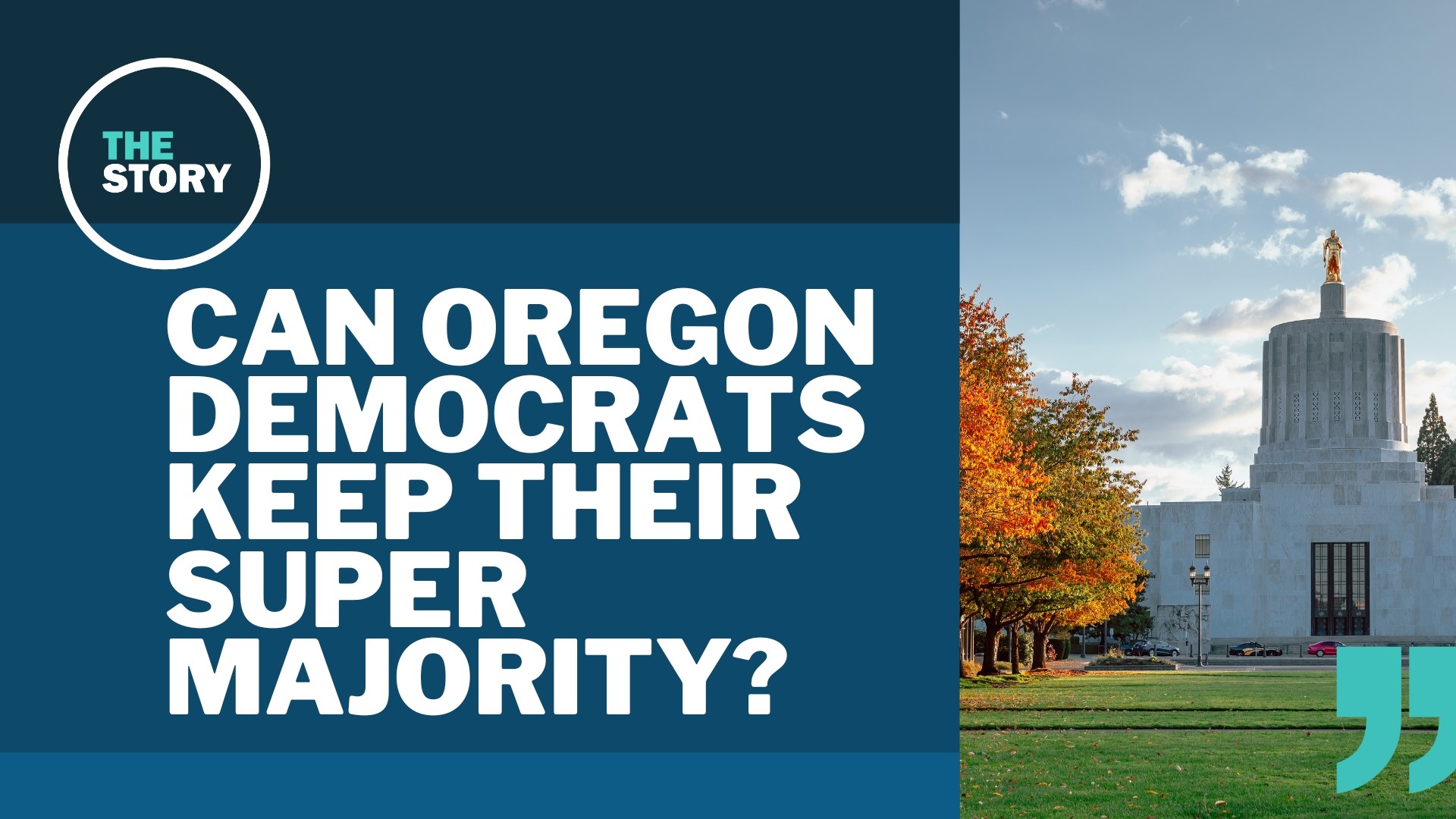SALEM, Ore. — Races for the Oregon state legislature don't always get much attention, at least compared to the federal and statewide races where fundraising is at another level. But there's a specific reason why Oregonians should pay close attention to state lawmaker races this election — taxes.
Under the Oregon constitution, the state House or Senate must get three-fifths of members to vote Yes in order to pass a tax bill. That's 60% of all legislators.
Getting 60% of lawmakers to agree on a tax is no easy task, unless your party already carries a large majority. In Oregon, Democrats do have this kind of supermajority, at least for the time being.
The Oregon House of Representatives has 60 members, all of them up for election this year. Democrats have the majority, with 37 members to Republicans' 23. This means that Democrats, as long as they can remain unified, can vote through any tax increase they please without bipartisan support.
This is precisely what happened in 2019, when Democrats pushed through the "Student Success Act," which raised funds for schools by instituting a corporate activity tax on businesses of a certain size. Virtually every Democrat in the House and Senate voted Yes and every Republican voted No. Three were absent.
Senate Republicans did begin a legislative walk-out during that session that delayed the Student Access Act and ultimately killed several other bills, and another walk-out in 2020 produced even greater effect in terms of halting bills that Republicans opposed. But on this year's ballot is a measure that could put a stop to walk-outs as a feasible form of resistance for the minority party, again underlining how powerful a supermajority can be: potentially irresistible.
For one party, a supermajority in the legislature allows them to raise taxes and pay for more initiatives as they see fit. For the other, it's just as important to take that power away if your party wants to make it hard to raise taxes.
As of this year, Democrats have 37 members in the Oregon House. Thirty-six is the magic number needed to reach the three-fifths supermajority — so if Democrats were to lose two seats on Tuesday, the supermajority would disappear. Suddenly it would be much more difficult to pass tax bills.
In the Oregon Senate, Democrats hold 18 seats, Republicans have 10 and there are two Independents. In this chamber, the magic number is 18, so Democrats can't afford to lose a single seat without the supermajority vanishing.
According to Oregon lobbyist Patrick Sieng, it's not just possible that Democrats will lose this power, it's likely to happen in at least the Senate.
"Almost certainly," Sieng said. "Currently with the Democrats having a supermajority in both chambers, I would say, just the numbers we've seen, folks we're talking to ... the momentum on the Senate side, they're bound to lose the supermajority there — which is, they have it by one vote. So, there's three or four competitive seats right now in the Senate. All you have to do, if you're the Republican side, is win one of those and you've taken away the supermajority."
Democrats losing the supermajority would be a huge deal, and something that KGW will be watching for closely on Tuesday. Meanwhile, the same math holds true for the Oregon House, where Democrats have only a two-seat hold on the supermajority. It could disappear just as quickly as in the Senate.
"On the House side, I think the Democrats will lose a couple seats — that's both sides of folks that I'm talking to are kind of acknowledging that," Sieng said. "So they'll most likely maintain the majority, but whether or not they will have their 36 needed for supermajority revenue-raising measures, that's still very much up in the air. Its gonna be a tough, tough haul. Seven competitive seats — they'd need to be able to win five or six out of the seven to be able to keep that."
What happens in the Oregon legislative races will set the scene for at least the next two years of policy in the state, as well as the laws or taxes that can or will be passed. It will also determine how easy it is for the new governor to push their priorities through the legislature.

